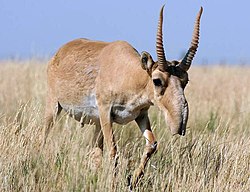Kituk: Difference between revisions
m (→Legislative) |
|||
| Line 89: | Line 89: | ||
===Executive=== | ===Executive=== | ||
===Legislative=== | ===Legislative=== | ||
The Legislative of Kituk is called the "Senate of Kituk". The 45 elected Senators serve terms of nine years. Every year, five Senate seats will be contested in an election - one seat for each Kituki Principality. More than 80 % of the Kituki Senate are aged 60+; only one of the Senators is female. | |||
While Kituk is unicameral, the Senate does not have unlimited influence on national matters. The constitution can not be changed without consent of the five Princes, nor does the Senate have much influence on Foreign Policy. This limited role extends to domestic policy, where the Senate has barely any influence on education and culture. Only through fiscal affairs does the Senate have any influence on these matters, by deciding whether to fund certain projects or not. | |||
Kituk's Senate is headed by the Senate President, currently [[Faraz al Chamanara]]. | |||
===Poltical Parties=== | ===Poltical Parties=== | ||
===Foreign Policy=== | ===Foreign Policy=== | ||
Revision as of 00:00, 19 July 2019
This article is incomplete because it is pending further input from participants, or it is a work-in-progress by one author. Please comment on this article's talk page to share your input, comments and questions. Note: To contribute to this article, you may need to seek help from the author(s) of this page. |
The Kituki Union of Principalities | |
|---|---|
|
Flag | |
| Largest city | Esketin Yo'li |
| Official languages | Standard Kituki |
| Demonym(s) | Kituki |
| Government | Federal Constitutional Quintarchy |
• High Representative | Ervin ir Indolyir |
| Legislature | Senate of Kituk |
| Area | |
• | 420,726 km2 (162,443 sq mi) |
| Population | |
• Estimate | 14,387,120 |
• Density | 34.2/km2 (88.6/sq mi) |
| GDP (nominal) | estimate |
• Total | $20,573,581,600 |
• Per capita | 1,430 |
| Driving side | right |
The Kituki Union of Principalities is a nation in Coius.
Etymology
Geography
Physical Geography
The Kituki Union of Principalities has several neighbours on the Coian continent. It shares most of its border with the Union of Zorasani Irfanic Republics, which is its Eastern neighbour. To the South, it shares a border with the Kingdom of Ten Thousand Flowers, commonly referred to as Phula. Its smallest border is located in the North of the country, where Kituk meets Karzaristan. This makes Kituk one of the Coian countries with the least neighbours.
Flora
Fauna
The wildlife of Kituk is very diverse.
The snow leopard is the national animal of Kituk. Once much more common, it was hunted to near extinction in the 1800s and early 1900s. In Kituki elites, it was considered a status symbol to have the hide of these animals at home. In rural areas, their paws were sold as lucky charms. It took the the intervention of the government to slow the slaughtering of snow leopards in Kituk. Nowadays, they mostly roam in the mountainous Principality of Biritan, where they feed on musk deer and markhor, among others. Vultures are another common sight in the Biritan region, as well as the birds Phoenicurus erythrogastrus, Lophophorus impejanus and the Carpodacus.
In the steppe regions of Kituk, the wildlife is very different. Rare animals such as the saiga or the endangered sociable lapwing roam the area. Other animals include wild horses, camels, marmots and urials, who often fall prey to the foxes and wolves inhabiting the steppes of Kituk.
Since Kituk does not have access to the oceans, most of its local fish are freshwater fish. These include the schizopygopsis stoliczkai, who are often found in the highlands; catfish like glyptosternon, rita rita, the giant river-catfish and wallago catfish and, in the mountain streams of Kituk, commonly the endemic triplophysa kullmanni or other fish.
Administrative Division
Population
Immigration
Languages
Religion
History
Politics
Heads of State
Executive
Legislative
The Legislative of Kituk is called the "Senate of Kituk". The 45 elected Senators serve terms of nine years. Every year, five Senate seats will be contested in an election - one seat for each Kituki Principality. More than 80 % of the Kituki Senate are aged 60+; only one of the Senators is female.
While Kituk is unicameral, the Senate does not have unlimited influence on national matters. The constitution can not be changed without consent of the five Princes, nor does the Senate have much influence on Foreign Policy. This limited role extends to domestic policy, where the Senate has barely any influence on education and culture. Only through fiscal affairs does the Senate have any influence on these matters, by deciding whether to fund certain projects or not.
Kituk's Senate is headed by the Senate President, currently Faraz al Chamanara.


